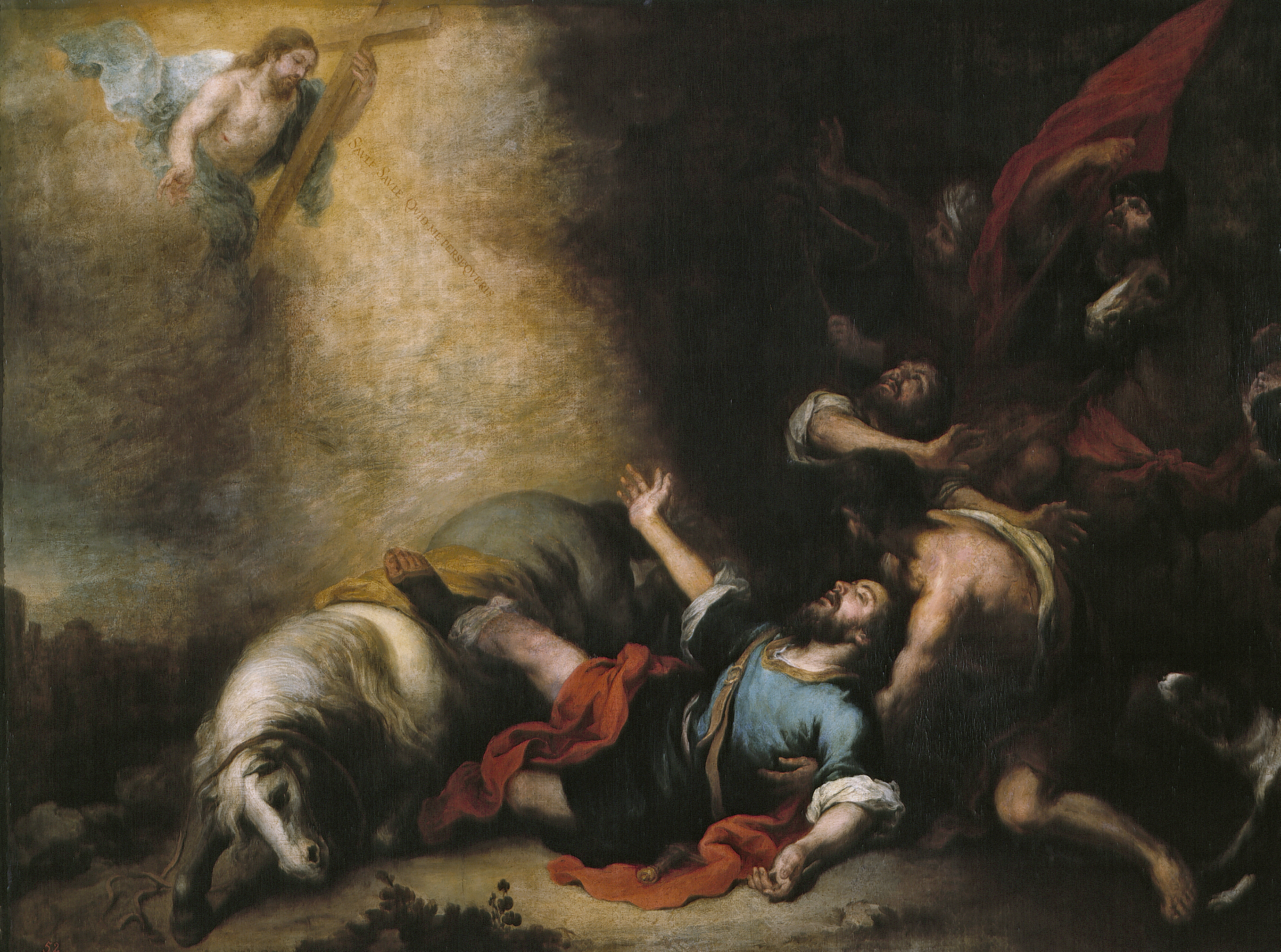Paul had no way of knowing when he awoke on the day he planned to descend on Damascus and take the followers of Jesus captive and put them in prison, that he himself stood on a threshold….No way of knowing that he himself would be taken captive that day, that he would be captured and captivated by the One for whom he would live the rest of his life….
There in the dust on the outskirts of Damascus, radiant light all around him, his eyes in darkness, confusion swirling in his heart, he was uprooted from one life and planted into another with his response, “Lord, what would you have me do?”
Transition moments are rarely neat. They aren’t pretty. Sometimes they don’t even make sense. Paul’s conversion, which we celebrate in the liturgy on January 25, appears quite dramatic and immensely important. We’ve witnessed for 2000 years how the life and teaching of this greatest of apostles has transformed the Church and powerfully influenced the world.
I am sure, however, that as Paul reached out for help when he stumbled to stand up, and as he was led by the hand like a child into the very city his arrival had been such a cause for alarm just a day prior, it was far from glorious. With every humiliating and faltering step into the city of Damascus, Paul was no doubt met with the comments and astonished jeers of bystanders.
When we are done being captivated by our great plans and stunning ideas and surrender to the Lord who takes us captive through similar not-so-pretty situations, we are also at a threshold in our lives. And this moment can seem equally inglorious. It can be difficult to hope that the closing of a door is offering a future ripe with new possibilities.
At these moments, remember this: You, like Paul, have been made for a purpose greater than anything you could imagine. You, like Paul, have been made for something far more than this world. After that meeting with Jesus on his way to Damascus, Paul didn’t just change his behavior, or his goals, or his actions. Paul allowed God to pull him up into his own mighty mystery and unfold selfless love to the world.
After his “conversion” Paul belonged entirely to God, but he also belonged most truly to himself. He now knew deeply the reason for which he had been born. His joy grew from strength to strength, even in suffering and weakness, as he discovered every day how glorious it is to be remade in the image of Christ for the glory of God the Father. This is the promise held out to each of us as we celebrate this feast in the Church.
Pablo no tenía manera de saber cuando se despertó el día en que planeaba descender a Damasco y tomar cautivos a los seguidores de Jesús y ponerlos en prisión, que él mismo estaba en un umbral… No había manera de saber que él mismo iba a ser llevado cautivo ese día, que sería capturado y cautivado por Aquel por quien viviría el resto de su vida…
Allí, en el polvo de las afueras de Damasco, con una luz radiante a su alrededor, sus ojos en oscuridad, la confusión dando vueltas en su corazón, fue desarraigado de una vida y plantado en otra con su respuesta: “Señor, ¿qué quieres que haga?”
Los momentos de transición rara vez son claros. No son bonitos. A veces ni siquiera tienen sentido. La conversión de Pablo, que celebramos en la liturgia del 25 de enero, parece bastante dramática e inmensamente importante. Hemos sido testigos durante 2000 años de cómo la vida y las enseñanzas de este gran apóstol han transformado la Iglesia e influido poderosamente en el mundo.
Estoy seguro, sin embargo, de que cuando Pablo buscó ayuda cuando tropezó al levantarse, y cuando fue llevado de la mano como un niño a la misma ciudad, su llegada había sido motivo de tal alarma apenas un día antes, que era lejos de ser glorioso. Con cada paso humillante y vacilante hacia la ciudad de Damasco, Pablo sin duda se encontraba con los comentarios y las burlas atónitas de los transeúntes.
Cuando terminamos de dejarnos cautivar por nuestros grandes planes e ideas sorprendentes y nos rendimos al Señor que nos lleva cautivos a través de situaciones similares no tan bonitas, también estamos en un umbral en nuestras vidas. Y este momento puede parecer igualmente vergonzoso. Puede resultar difícil esperar que el cierre de una puerta ofrezca un futuro lleno de nuevas posibilidades.
En estos momentos, recuerda esto: tú, como Pablo, has sido creado para un propósito mayor que cualquier cosa que puedas imaginar. Tú, como Pablo, has sido creado para algo mucho más que este mundo. Después de ese encuentro con Jesús en su camino a Damasco, Pablo no sólo cambió su comportamiento, ni sus objetivos, ni sus acciones. Pablo permitió que Dios lo arrastrara hacia su propio misterio poderoso y desplegara su amor desinteresado al mundo.
Después de su “conversión”, Pablo pertenecía enteramente a Dios, pero también se pertenecía verdaderamente a sí mismo. Ahora conocía profundamente la razón por la que había nacido. Su gozo creció de fuerza en fuerza, incluso en el sufrimiento y la debilidad, mientras descubría cada día cuán glorioso es ser rehecho a la imagen de Cristo para la gloria de Dios Padre. Ésta es la promesa que se nos ofrece a cada uno de nosotros al celebrar esta fiesta en la Iglesia.

Sr. Kathryn James Hermes, FSP, is an author and offers online evangelization as well as spiritual formation for people on their journey of spiritual transformation and inner healing. Website: www.touchingthesunrise.com My Books: https://touchingthesunrise.com/books/
Public Facebook Group: https://www.facebook.com/groups/srkathrynhermes/ HeartWork Spiritual Formation Group: https://touchingthesunrise.com/heartwork/
Feature Image Credit: Bartolomé Esteban Murillo, Wikimedia Commons https://commons.wikimedia.org/wiki/Category:Conversion_of_Saint_Paul#/media/File:La_conversi%C3%B3n_de_san_Pablo_(Murillo).jpg

